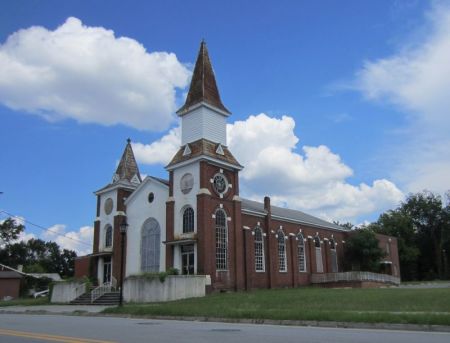Preservationists Fighting to Keep Georgia Company From Demolishing Historic Black Church

A Georgia company is planning to move ahead with the demolition of a historic African-American church building due to its property containing contamination.
Atlanta Gas Light, a natural gas delivery service that boasts approximately 1.6 million customers, is seeking to demolish Trinity Christian Methodist Episcopal Church of Augusta.
At issue were decades of coal tar from the manufacturing process of a nearby gas plant that opened back in the 19th century, which threatens the local water table.
Although the Augusta Historic Preservation Commission recently denied the demolition request, AGL is appealing its decision.
Standing against them are preservationists and others who believe that the building can be safely relocated to a non-contaminated space.
Erick Montgomery, executive director of Historic Augusta and a proponent of moving the building, told The Christian Post on Tuesday that moving the building remains a viable solution as a committee called "Save Mother Trinity" was raising funds for the project.
"The committee was able to get technical assistance from Partners for Sacred Places, a national preservation organization based in Philadelphia that is dedicated to preservation of historic religious edifices," explained Montgomery.
"The committee was making good progress with the presumed cooperation of Atlanta Gas Light. We received bids for moving the church. They offered a lot across Taylor Street that was already clean. They offered $300,000. The Augusta Canal Authority found $475,000. This would be enough to move the church out of the way by their deadline, and then work toward restoration and finalize future use."
Founded during the Antebellum Era, Trinity CME Church began as a congregation specifically for African-American members of St. John Methodist Church of Augusta.
"We at Trinity have much to be proud of," the current congregation, which worships at a newer facility elsewhere in the city, said on their website.
"Three of our former pastors were elected bishops; two served as general officers; five of the bishops of the CME Church were elected and consecrated in Trinity; and three of the General Conferences were held at Trinity in 1873, 1886, and 1910."
In 1852, Augusta's first gas manufacturing plant was constructed not far from the historic church property. Over time, waste from the plant seeped into the ground in and around the building.
AGL eventually bought out the congregation in the 1990s, leasing the property out to a nonprofit that was planning to build a community center. In 2015, the lease was canceled.
In July, the Historic Preservation Commission denied an application by AGL to demolish the building. On Aug. 29, AGL appealed the decision.
AGL spokesperson Mekka Parish provided CP with a statement from the company saying that while they would have preferred to see the building moved, the resources to successfully do so are lacking.
"Atlanta Gas Light is concerned that even if the building can be safely moved, without a viable plan to complete the entire project, the effort may only transfer a rapidly deteriorating building to a different location where it could become a blight and safety hazard for the community," stated AGL.
"The Historic Preservation Commission should adhere to its own evaluation criteria and recognize no economically-viable option to complete the project has been proposed."
The statement also noted that a reversal of the denial for demolition "would allow the cleanup and redevelopment effort to continue without the need for litigation."
"Notwithstanding this, Atlanta Gas Light is committed to working with interested stakeholders during the required mediation process to try to reach consensus on an outcome that meets the objectives of the community and the necessary environmental remediation," added AGL.




















